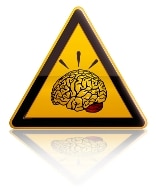Mental Illness Stigma Still a Challenging Work-in-Progress for Psychology & Psychiatric Marketing
 The problem is as old as the diagnosis, but more “anti-stigma” psychology and psychiatric marketing medicine is still needed.
The problem is as old as the diagnosis, but more “anti-stigma” psychology and psychiatric marketing medicine is still needed.
The American public still regards mental illness—schizophrenia, depression, and alcohol dependence—as shameful, according to research published recently in the American Journal of Psychiatry.
Public and patient “understanding” has improved, but prejudice remains. Conclusions: “More of the public embraces a neurobiological understanding of mental illness. This view translates into support for services but not into a decrease in stigma. Reconfiguring stigma reduction strategies may require providers and advocates to shift to an emphasis on competence and inclusion.”
Researchers from the Schuessler Institute for Social Research and the Department of Sociology, Indiana University; and the Mailman School of Public Health, Columbia University, New York compared data over a 10-year period. “Clinicians, advocates, and policy makers have presented mental illnesses as medical diseases in efforts to overcome low service use, poor adherence rates, and stigma.”
Among their findings: In 2006, 67 percent of the public attributed major depression to neurobiological causes, compared with 54 percent in 1996. Social distance and perceived danger associated with people with these disorders did not decrease significantly.
The research suggests there’s more work ahead for communications professionals in psychology and psychiatric marketing to change the persistent attitude from bias to understanding.
“Holding a neurobiological conception of these disorders increased the likelihood of support for treatment but was generally unrelated to stigma. Where associated, the effect was to increase, not decrease, community rejection.”
Read More: Am J Psychiatry








